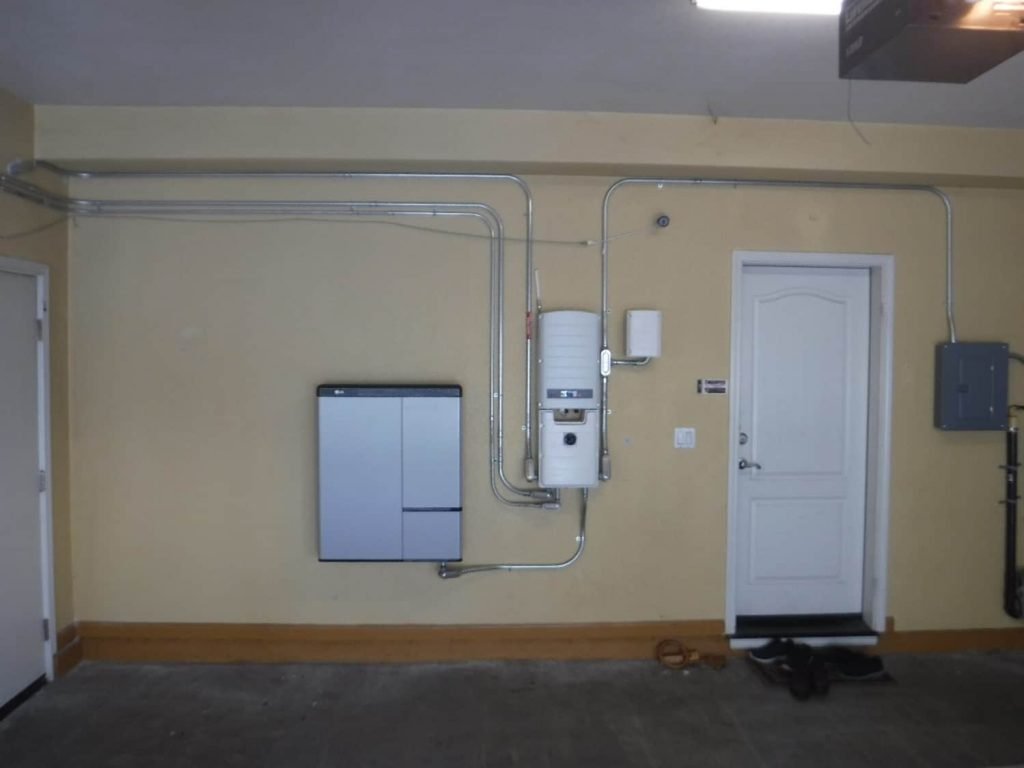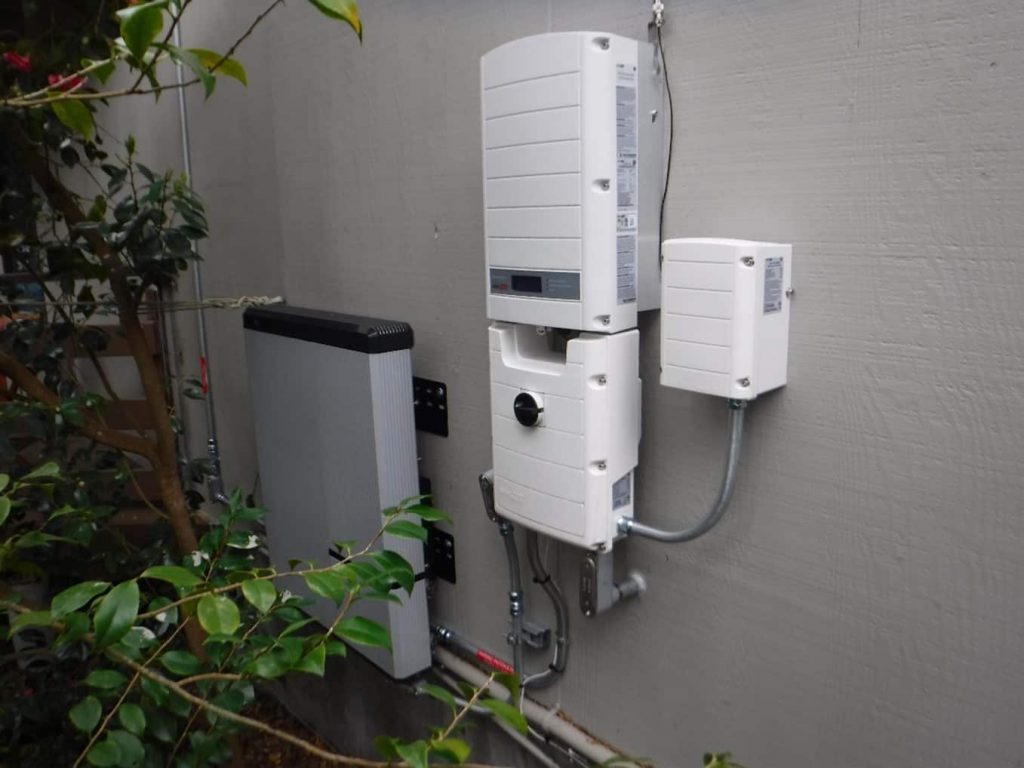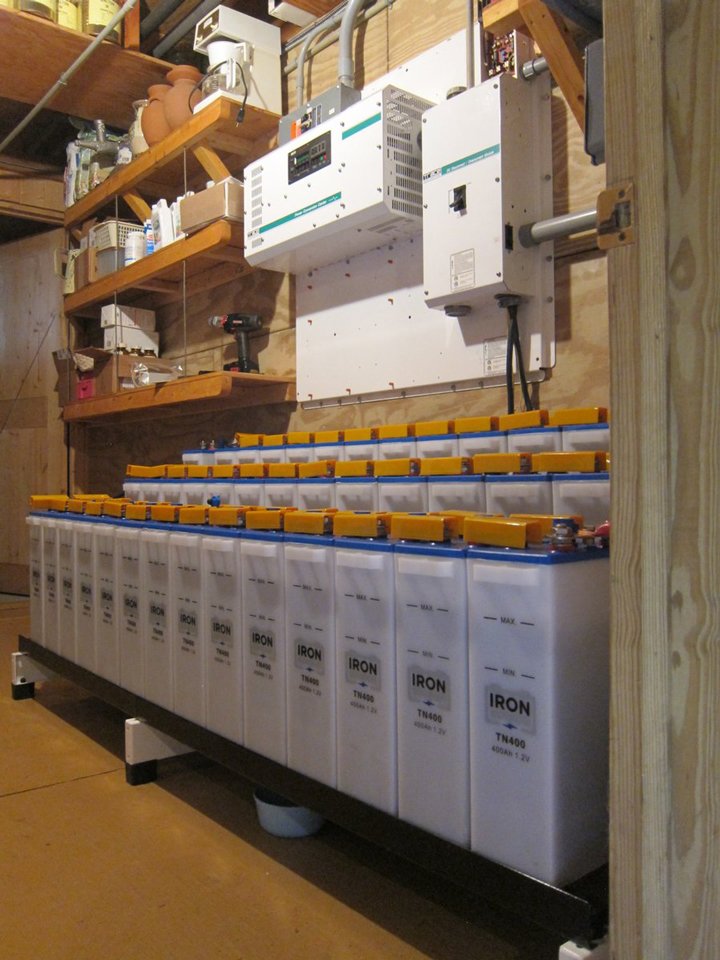
Overview:
If you’re looking for a complete home generator to prevent power outages, you might be surprised to hear that a home backup battery can be just as effective as backup power. Batteries like the MaxWorld Power Powerwall don’t even need solar panels.
The home backup battery is still a relatively new technology, which means there’s still a lot to learn about its benefits. So, to better understand the difference between a home backup battery and a generator, we’re going to look at some of the key factors that may influence your buying decision, including:
Infrastructure needs
Energy needs and priorities
Tax credits and long-term savings

Home Backup Battery VS Generator
Infrastructure needs
Generators often require a significant amount of infrastructure to operate. Therefore, household batteries may be a better choice due to the ease of installation.
MaxWorld Power’s Powerwalls, for example, are sleek and lightweight, and you can simply mount them on your garage wall. No heavy setup is required.
Better? MaxWorld Power Powerwalls connect directly to your local grid. Using smart technology, your Powerwall stores energy when electricity prices are low. In the event of a power outage, your home automatically draws power directly from your Powerwall – keeping you safe and protected, saving you money on price!
On the other hand, home generators tend to require a considerable (and expensive) infrastructure investment, even before installation.
For example, to prepare a home generator, you may need:
Concrete slabs or gravel pads Because entire home generators are fairly heavy, they usually require a specialized concrete slab or gravel pad to sit on. If you haven’t installed one yet, you may need a professional contractor to build one for you.
A dedicated gas line. Home generators need fuel to run. Depending on the location of your appliance meter, you may need to install a dedicated gas line to reach your generator location.
Covering or Shed Protected by Guards For safety reasons, the law requires home generators to be at least 5 feet away from your home or garage. If you live in a rainy or snowy climate, you may also want to install a dedicated cover or even a shed to keep your generator from exposing it to the elements.
A backup battery is much easier to install than a home generator—no concrete slabs, dedicated gas lines, or shields are required.
While it’s true that most home backup battery does require solar panel installation (the MaxWorld Power Powerwall is an exception), your solar system will likely cost less than your generator. However, we will discuss the cost factor in more detail below.

Energy needs and priorities
Generators can provide anywhere from 16 to 50 kilowatts of electricity. While a home backup battery produces about half that range (4.5 to 29 kilowatts), the average household needs only about 20 kilowatts to run comfortably during a power outage, which is well within the range of home backup batteries.
Additionally, when combined with solar panels, battery backup is a 100% renewable energy source that can power your home for decades to come. Generators, on the other hand, require a constant supply of gasoline, propane, and other environmentally costly fossil fuels. If clean energy is important to you, battery backup for your home is certainly the better choice.
That being said, in some cases a generator may be necessary to meet your backup energy needs, it’s important to:
You don’t have solar panels and you don’t plan to install them. If you’re considering a MaxWorld Power Powerwall because it can be networked, it’s important to know that your energy storage will be limited. During a power outage, once you drain the battery, you will not be able to recharge it until municipal power is restored. However, the generator can be refueled. So, if you lose power for days at a time, it’s possible to get more fuel to keep your home powered.
You are in a very cold climate with limited sunlight. Extreme climates require special attention to energy consumption, as cold temperatures can be life-threatening when your electricity runs out. In this case, a gas generator may be your most reliable option. Due to limited sunlight, solar panels may not be a viable option. As mentioned above, grid-connected MaxWorld Power Powerwalls have a limited backup power source.
You have a large home and need extra support. In some cases, you may want to install a battery backup and a complete home generator. For example, if you have a very large estate, your electricity needs may be greater than most, and you can benefit from extra peace of mind in an emergency.

Solar tax credits and long-term savings
When it comes to cost, generators and home battery backup setups are practically comparable. You may also encounter the same 0% down payment, and low monthly payment plan to help lessen the impact on your upfront budget.
With this in mind, battery backup for home is the more affordable option for the following reasons:
Battery for home power supply requires less maintenance. Fuel generators are more prone to failure with extensive use. Also, because they run on gasoline, they require constant safety and performance checks. If you want to avoid long-term maintenance bills, home backup batteries won’t strain your wallet like a generator.
Home batteries offer the highest long-term savings when paired with solar panels. Unlike a generator, when you buy a home battery backup and install a solar panel, you can make that money back with renewable solar power. While the sun is charging your solar panels, your home battery will store unlimited free energy; something a generator can’t do because it relies on a limited and expensive supply of natural gas fuel.
When paired with solar panels, you’ll get a substantial tax credit on your home battery. Until the end of 2023, homeowners can claim a 22-26% federal solar tax credit for their new solar system, including home battery backup. In addition to this, there are local tax rebates, state tax credits, and other possible incentives.
With tax benefits alone, batteries for home power supply can replace home generators. To learn more about how to claim the 26% federal tax credit for a brand new solar installation – including solar home backup batteries – check out our solar incentives page.

Conclusions:
Contact MaxWorld Power! With decades of combined experience, our team of registered electricians will provide you with honest and customized advice. We offer some of the most energy-efficient home backup batteries on the market and will ensure your house is safe from power outages!

